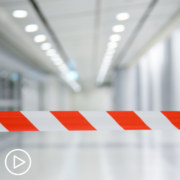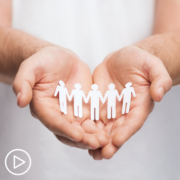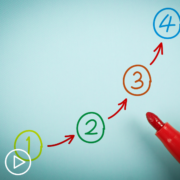What Key Questions Should CLL Patients Ask About Digital Tools Born Out of COVID?
What Key Questions Should CLL Patients Ask About Digital Tools Born Out of COVID? from Patient Empowerment Network on Vimeo.
What are some key questions that chronic lymphocytic leukemia (CLL) patients can ask about digital tools for their CLL care? Dr. Kathy Kim from UC Davis School of Medicine offers advice on questions to ask and explains important use factors about some technologies.
See More from Best CLL Care No Matter Where You Live
Related Resources:
Transcript:
Dr. Kim:
Patients should be advocates and they should ask, what can you give me that can help me through this process, and what tools do you have for me to communicate and stay connected with my doctor? So, you should ask, are there ways for me to get in touch that are not calling, just when the clinic is open, do you have a secure messaging system? Can I message through the patient portal? Do you have an app that’s available for that patient portal that I can download? Do you have any other research studies where they’re trying as the same way you said patients should ask other clinical trials, are there research studies using technology for cancer patients? So as much as outreach as we do to try to recruit patients into our technology trials, oftentimes somehow patients don’t hear about it, so if you ask and you’re interested, is there a study like that where I can get access to technology to try it out, to see if it will help. So, you should definitely be an advocate, but I think some specific tools that patients should be asking about that are already available are things like, how can I get an electronic copy of my care plan? Can I get that through the portal or do you have an app where I can download my actual care plan? How do I get electronic copies of my medical records?
Where can I get them? And how can I store them safely? How can I connect to other patients in my area? Do you have an online patient support group? Do you have any services at the hospital where you connect patients like me as close as possible to the kind of patient I am, that you can make a match for me to talk to someone by using either ZOOM like this or an online support group or just one-on-one match maybe introducing by email. These are all technological tools that already exist that are not, that should not take a huge amount of time for someone to learn a new technology, but you want to make sure that it’s something that your hospital and your provider feel comfortable have tried and know that it’s secure and safe and useful. You don’t wanna go off and do something that your provider has no connection to it, you really wanna keep these as integrated as possible, and in that way, I think in the future, we won’t just rely on Mr. Marks, you have to come in to the hospital for every single thing. We want to give you all these tools, and then you and your doctor can decide which things you really have to come in person for and which things you can access online.
And so that is the conversation that every time you go talk to a new provider or go to a new hospital or clinic, you should ask, what technologies do you have that are available to the patients? And that that’s how I think we’re gonna push forward our new model of cancer care, which I will hope will use the technology to allow patients to collaborate with their healthcare team more easily and more seamlessly and in a way that’s safe and secure









